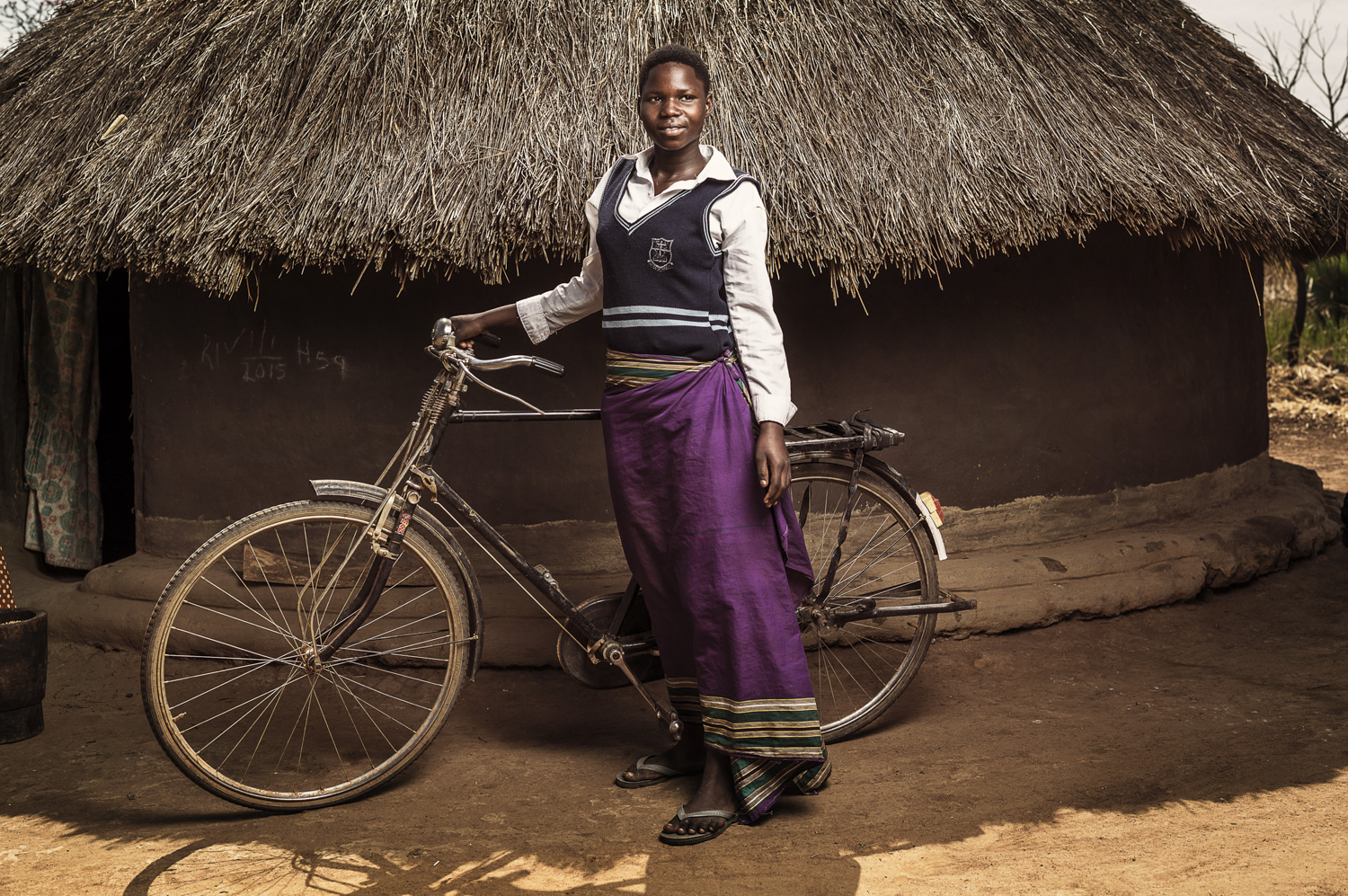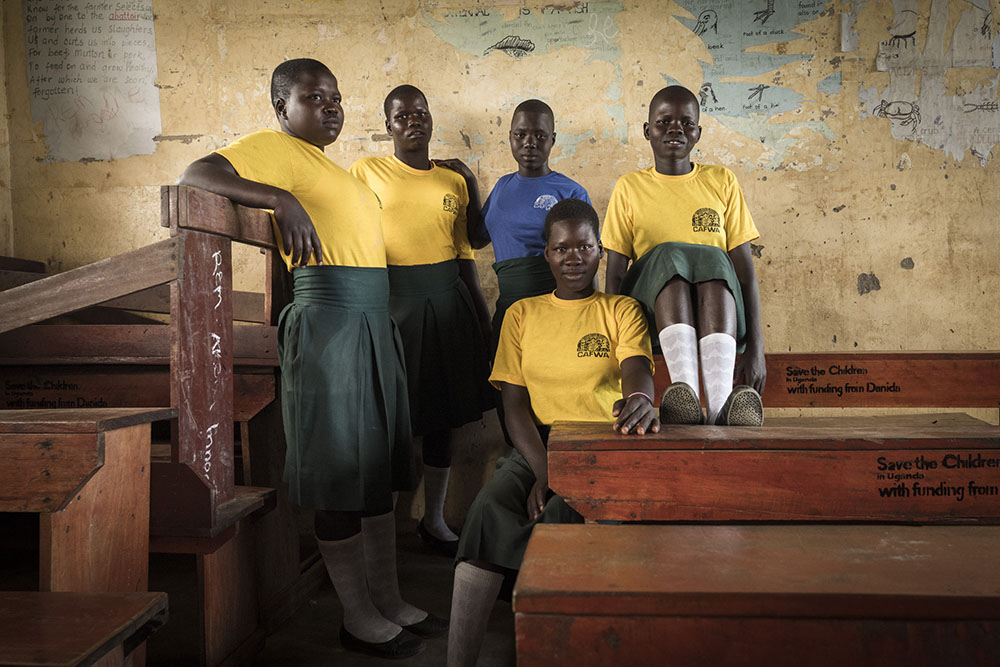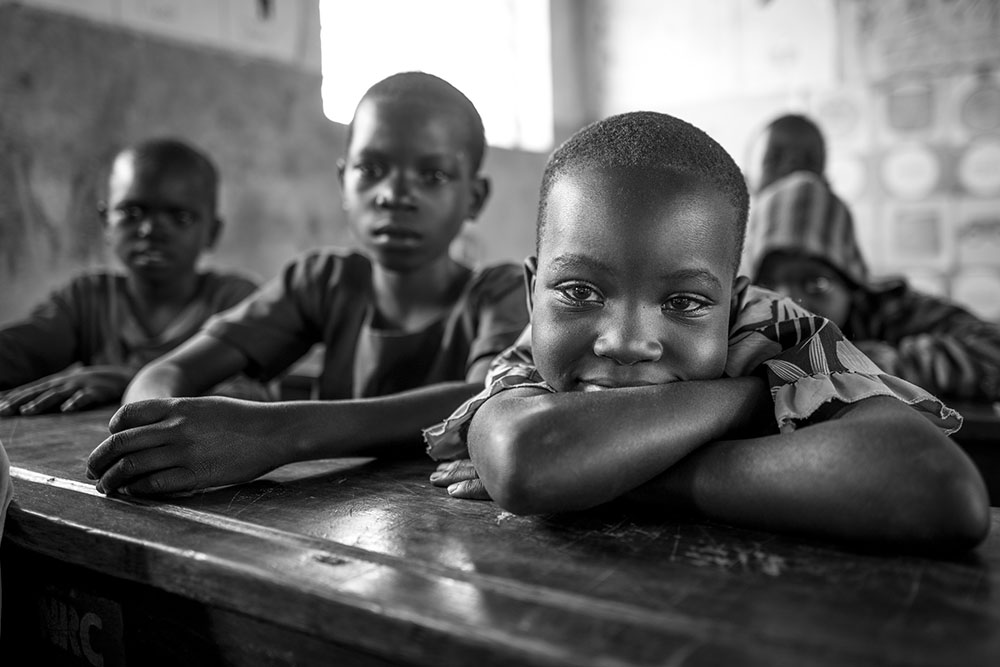Girls Education
How to Keep Girls in School
Improving Girls Education in Northern Uganda
One of our primary missions is to increase access to primary and secondary education for girls in Northern Uganda by building awareness and support for girls’ education in communities. Girls access to education continues to be an area that is deeply troubling. The overall primary education graduate rate in Northern Uganda is at 47%. However, in some of the areas where African Women Rising works not a single girl graduates from primary school.
Removing the Obstacles
The main barrier is poverty as parents are not able to afford to pay for school fees. But even in families where funds are available girls still fail to advance academically. Girls are expected to help with household chores and their irregular attendance at school leads to a failure in passing year-end exams. Not passing means they are held back and must repeat a grade. Once a girl starts menstruating lack of access to menstrual pads lead to more days missed and before long many girls drop out completely. With few other options the trend is for girls to marry early and have children at a young age. These children are in turn less likely to complete primary education and the perpetuation of the issue continues.
The refugee crisis from South Sudan has made the situation even starker. Over one million people have crossed the border into Northern Uganda, many coming to the areas where we are working. Some 80% of refugees are women and children. The majority of these children attend school in the refugee camps, and some are joining local schools. Schools in the camps are often over-crowded, with 200 children in one classroom with only one teacher. The situation is similar in local schools; lack of staff and materials makes it difficult to provide the support needed to ensure that girls are successful.



A Program with Solutions
Community Dialogue and Awareness Raising
AWR’s community dialogues focuses on discussions with parents where we help them identify the reasons for girls’ lack of success in school. Experience has shown that girl students of parents engaged in these types of dialogues have a far greater attendance record than those girls whose parents have not taken part in the community dialogues. AWR’s community mobilizers and school mentors visit parents at a minimum once a month to provide updates on their child’s progress and attendance. This helps parents become better informed and involved in their daughters’ education and help us identify and immediately solve problems that prevent attendance
Every girl in the program receives a kit of reusable sanitary pads, underwear and soap.


Academic Mentorship
The continued academic success of girls depends on their ability to receive meaningful instruction, be part of a classroom that is conducive to learning and access help that can explain concepts they do not understand. AWR mentors work together with teachers as aides to provide support to those students in the classroom that need additional assistance. Mentors work closely with the Senior Woman Teacher at each school, keeping track of the individual progress of each girl as well as attendance. Fridays are spent for home visits to those families where girls are starting to fall behind or are not attending on a regular basis. The program starts in grade 4, as it is in this grade we have seen the greatest level of drop out of girls.
AWR provide textbooks and scholastic materials for all of the girls in the program as many schools lack basic items such as chalk, exercise and text books, pens, math sets and books for reading.
PHOTO GALLERY
Franka is 14 years old, her father was killed by the LRA and mother died from disease. She has 4 siblings, they all live with her grandmother. Franka has been part of the Girls Education program for 2 years. Before the program she was not doing well in school, but now she gets academic support from her mentor. Favorite subject is math. The best thing about school is the friends she has. She wants to be a surgeon.
“I am a math teacher and love my work. I have been at this school for two years now. Sometimes it is hard to give the students the support they need, we don’t have many resources here and there are too many students in one classroom. I was happy when AWR started the program at our school. They have mentors that come and support me and the students, especially the weaker ones.” Filda Lanyero
“I am the head teacher here at Paibona school. The most difficult thing is getting parents involved and we are glad AWR is helping mobilize them. The pads (reusable menstrual pads) are important to make sure girls stay in school, our attendance is improving. We would like to get a library. The students need to read more, but we don’t have any books.” Kenneth Otim
Every parent we talk with want their children to go to school, get an education and have a better life. But poverty and social norms are difficult to break. Girls are often kept at home to help with chores.
AWR provide schools with textbooks and learning materials. In many of the schools where we work teachers don’t even have chalk.
Our mentors work in the schools 4 days a week, the 5th day is spent visiting families. They keep attendance and make sure to do home visits in situations where girls are not coming to school. Many of our mentors are women and they become important role models for the girls.
Debate club in full swing! AWR supports after school programs such as theater club, sports, reading, green club, and much more.
All students travel to Gulu for a field trip to a secondary school. This is to help visualize what they are working towards. For most of the students it is the first time they have been on a bus.
